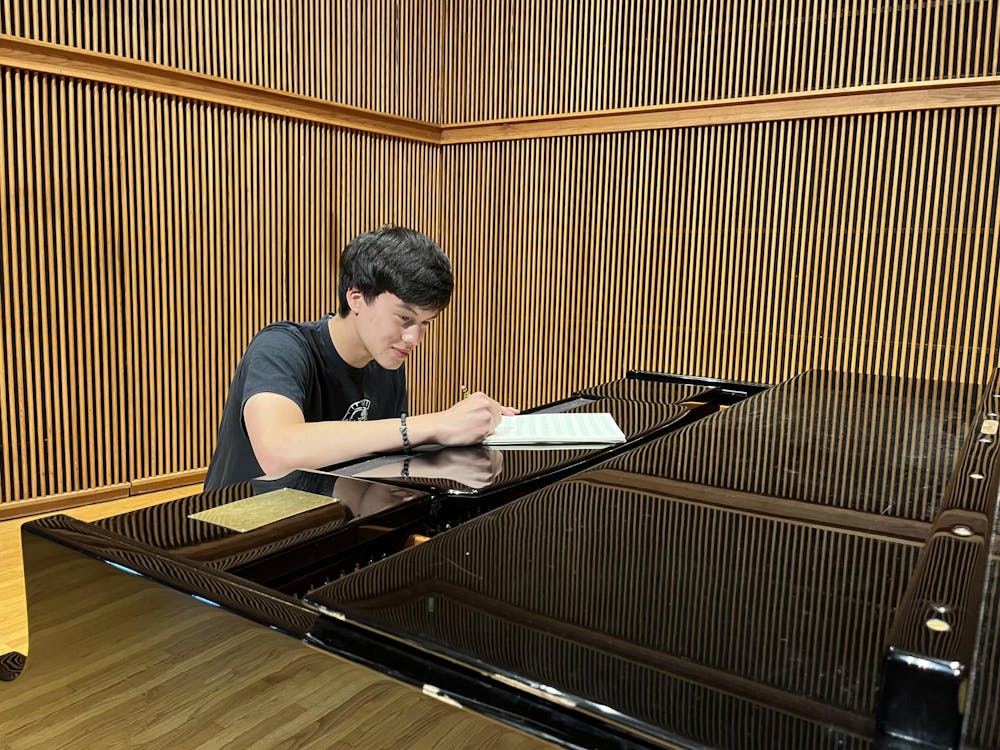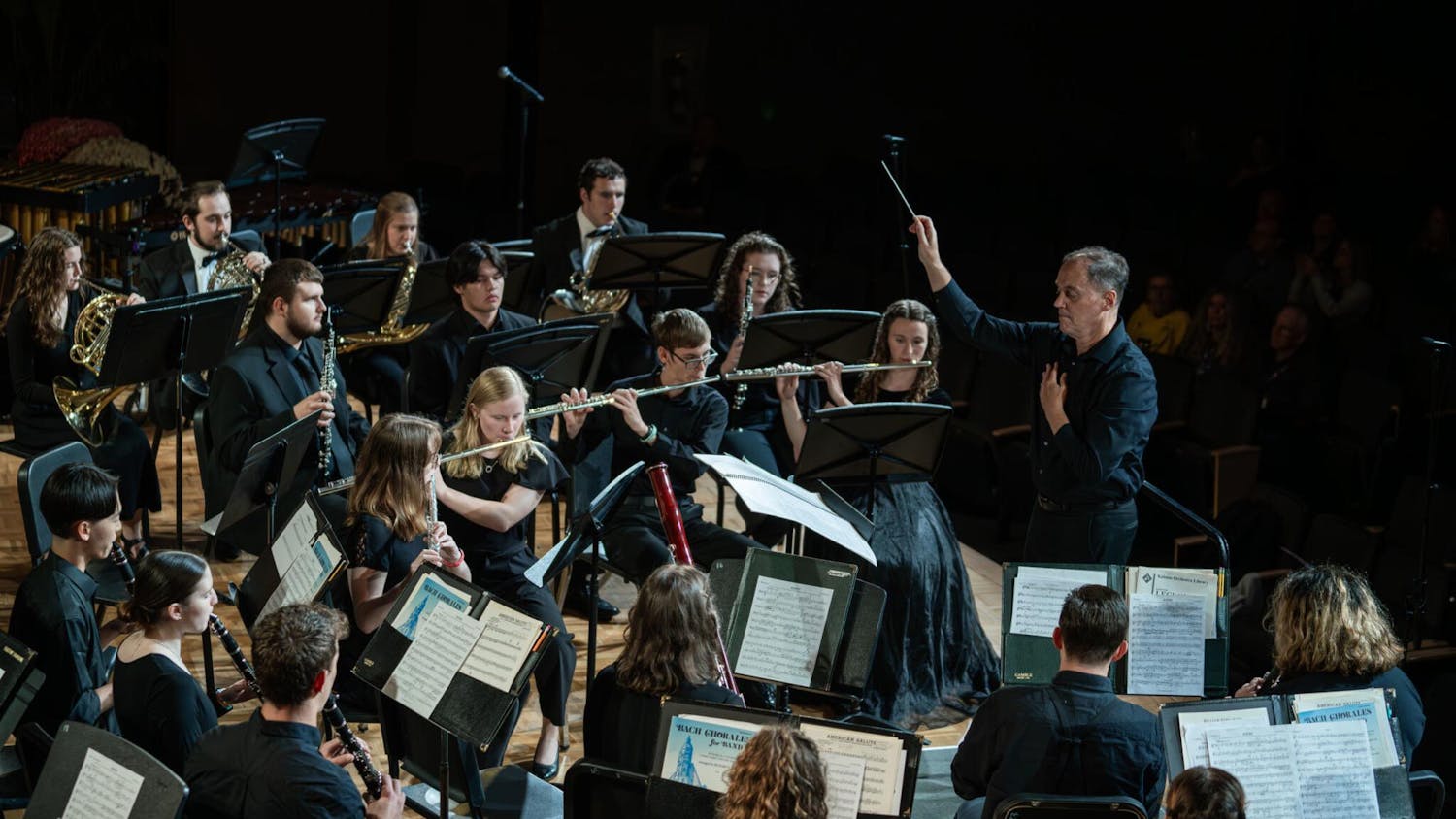A story of jealousy, possessive love and redemption finds new life, as Ethan Watts, a senior music composition major, and Reed Spencer, department co-chair, associate professor of music and director of choral ensembles, adapt C.S. Lewis novel “Till We Have Faces” into a musical.
Their common love for Lewis’s final novel inspired them to undertake this project over the summer, Watts said. This was made possible through the Faculty-Mentored Undergraduate Scholarship (FMUS).
“I first read it probably freshman year-ish, and I fell in love with it, and I thought, ‘Wow, this could be kind of cool to see on stage,’” Watts said.
The process has been a difficult one, with approximately 300 hours that have gone into the project thus far, Spencer said.
Converting Lewis's words into song was delicate work, Spencer said. They had to figure out how to be faithful to his revered writing style while still successfully capturing it in a different art style.
Over the summer, Spencer and Watts met together daily and worked chronologically through the book. They mapped out dialogue and assigned songs to characters. Watts would then work seven to eight hours a day, recording and writing.
One of Watts’s goals with this project has been to make the story of “Till We Have Faces” comprehensible to a wider audience.
“It's very abstract, and so it could turn people off from trying to read it. So it'd be cool to see if I could make this more accessible for people,” Watts said.
Lewis’ story is a retelling of the Greek myth of Cupid and Psyche and is told from the perspective of Orual, Psyche’s sister. Orual’s obsessive, controlling idea of love for her sister is a prominent theme in the story.
The story stems from how Orual deceived herself into believing her possessive desire to control her sister was love. She believes she is doing what is best for her sister and could not see her obsession for what it was.
“It's ultimately a redemptive story about a person whose whole life has been a complaint and realizing that she's never quite been honest with herself,” Spencer said.
A key theme often repeated in the novel by characters is that the loving and the devouring are one, Brenna Moan, a junior music composition major, said.
Orual’s thoughts are finally exposed at the end of the book, revealing her deluded belief that Psyche belonged to her and was hers to control, Moan said.
Moan has contributed to “Till We Have Faces” as a performer and collaborator by singing Psyche’s parts and providing lyrical advice.
As Moan and Spencer have contributed to the project, the time spent with the story has been impactful to them.
“It's so interesting because I recognize it paralleled in my own life—how I can love someone so much and think that I'm acting out of love, but really I'm acting out of selfish desires to control,” Moan said.
She said that the story helped her realize there were places in her own life she called “love” that were actually unhealthy.
Spencer cited the book as both encouraging and challenging.
“I highly recommend the book. I think it's been a transformative book for my life,” Spencer said. “[It] has convinced me of Lewis's genius as a writer and has also proved to me the value of myth and story as a teacher.”
Watts and Spencer are still in the process of adapting the story. Typically, the writing process of a musical is five to seven years, Watts said.
There is still much to be done. Watts estimates that they are about a third of the way through the book and 20% of the way through the project.
They hope to showcase their current work at a workshop in November, Spencer said.





